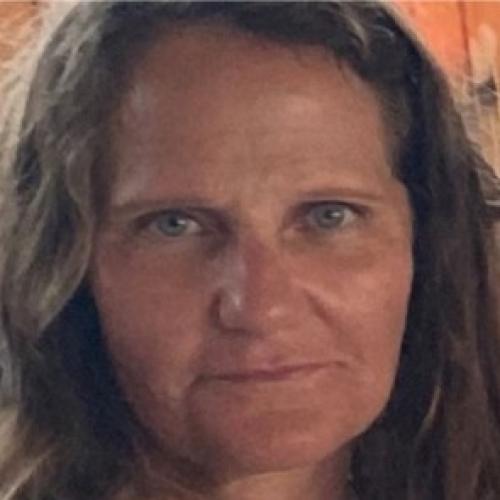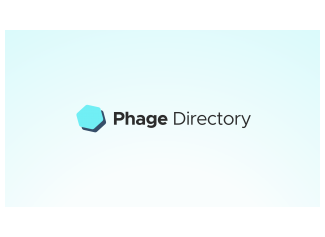
Dr Carl Merril
Dr. Merril, a 1962 graduate of Georgetown University Medical School studied phage biology and medical applications for over 5 decades at the NIH. His studies were inspired by participation in the Cold Spring Harbor Phage Biology Course in 1966 and they included: the interactions of phage and mammalian systems, the development of enhanced phage strains for use as antibacterial agents and the development of phage libraries as an aid in searching for phage for the treatment of individual clinical infections. An extensive, Phage library along with technologies needed to facilitate their use has recently been developed by the Naval Medical Research, Biological Defense Research Directorate and Infections Disease Departments. This technology has been licensed and a Cooperative Research Agreement has been established with Applied Phage Therapeutics (APT), a company cofounded by Dr. Carl Merril and his son , Gregory Merril, where they serve as the Chief Scientific Officer and Chief Executive Officer, respectively. The primary goal of APT and the Navy is to further the development and clinical appliations of phage, particularly for serious antibiotic resistant bacterial infections.

Dr Breck Duerkop

Dr Derek Holman
Derek Holman is a post-doctoral fellow at Stanford University School of Medicine. His post-doctoral research focuses on the integration of label-free non-invasive chemical imaging into transcriptome platforms for precision medicine applications. He received his Ph.D. in 2016 from the Uniformed Services University of Health Sciences where his research involved investigating neurocognitive dysfunction due to genetic disorder or mild-to-moderate brain injuries. This involves genetic manipulation of mice, precise sample preparation, and multi-modal molecular imaging. Derek received his Bachelor degree in Chemistry from University of California at Berkeley.

Dr Catherine Loc-Carrillo
I obtained my Ph.D. from Nottingham University, UK in 2005, studying ‘Bacteriophage control of campylobacters in poultry production’ and have over 18-years of experience working with phages and medically important pathogens. I worked in the biotech industry between 2006 and 2009, developing phage-based products to detect foodborne pathogens and decontaminate food following regulatory guidelines. I moved back into academia in 2010 to work for the University of Utah. I’m currently a Research Assistant Professor at the University of Utah and a Research Scientist at the Salt Lake City Veterans Affair Medical Centre.
My research is focused in developing translational studies to prevention and treatment polymicrobial infections using experimentally infected animal models. My goal is to conduct well-controlled, impartial research to investigate the use of phages as biocontrol agents to clinically problematic infections, with particular emphasis on antibiotics resistant bacteria.

Dr Cara Fiore

Dr Nick Conley
Dr. Nick Conley is Principal Scientist for Locus Biosciences. Before joining Locus in 2018, Nick was co-founder of EpiBiome, a South San Francisco-based precision microbiome engineering company that built the world’s first fully automated high-throughput phage discovery, characterization, and genomics platform, where he served in various roles, including CEO and Chief Science Officer. During this time, the company gained admission into Illumina Accelerator, Johnson & Johnson Innovation’s JLABS, and Stanford-StartX; secured non-dilutive funding from the Bill & Melinda Gates Foundation and the US Department of Defense; established a top-3 pharma partnership; and raised more than $10 million dollars in financing. Prior to EpiBiome, Nick was Staff Scientist at HGST, a Western Digital Company. Nick completed a postdoc in Developmental Biology at Stanford University, and he holds a PhD and BS in Chemistry from Stanford University and The University of Texas at Austin, respectively.

Dr Taylor Wallace
Taylor C. Wallace, PhD, CFS, FACN, is Principal and CEO at the Think Healthy Group and a Professor in the Department of Nutrition and Food Studies at George Mason University. Prior to founding the Think Healthy Group, Dr. Wallace served as the Senior Director of Science Policy and Government Relations at the National Osteoporosis Foundation (NOF) and the Senior Director of Scientific Programs at the National Bone Health Alliance (NBHA), a public-private partnership, managed and operated by the NOF. He has extensive experience in developing and implementing comprehensive and evidence-based legislative, policy, and regulatory programs in the fields of nutrition and food science. His academic research interests are in the area of nutritional interventions to promote health and prevent the onset of chronic disease. Dr. Wallace’s background includes a PhD and an MS in Food Science and Nutrition from The Ohio State University and a BS in Food Science and Technology from the University of Kentucky. In his free time, Dr. Wallace manages and operates a large food and nutrition blog, www.DrTaylorWallace.com, where he provides science-based nutrition, food safety, and food technology information to the general public and consumer media. Dr. Wallace has served on the Boards of Directors for the Institute of Food Technologists, Alliance for Food and Health, Feeding Tomorrow, and Phi Tau Sigma. He is a fellow of the American College of Nutrition and is the 2015 recipient of the Charles A. Regus Award, given by the American College of Nutrition for original research and innovation in the field of nutrition. Dr. Wallace is a Senior Fellow of the Center for Magnesium Education & Research, the Deputy Editor in Chief of the Journal of the American College of Nutrition, Editor in Chief of the Journal of Dietary Supplements, the editor of six academic textbooks, and an author of over 40 peer-reviewed manuscripts and

